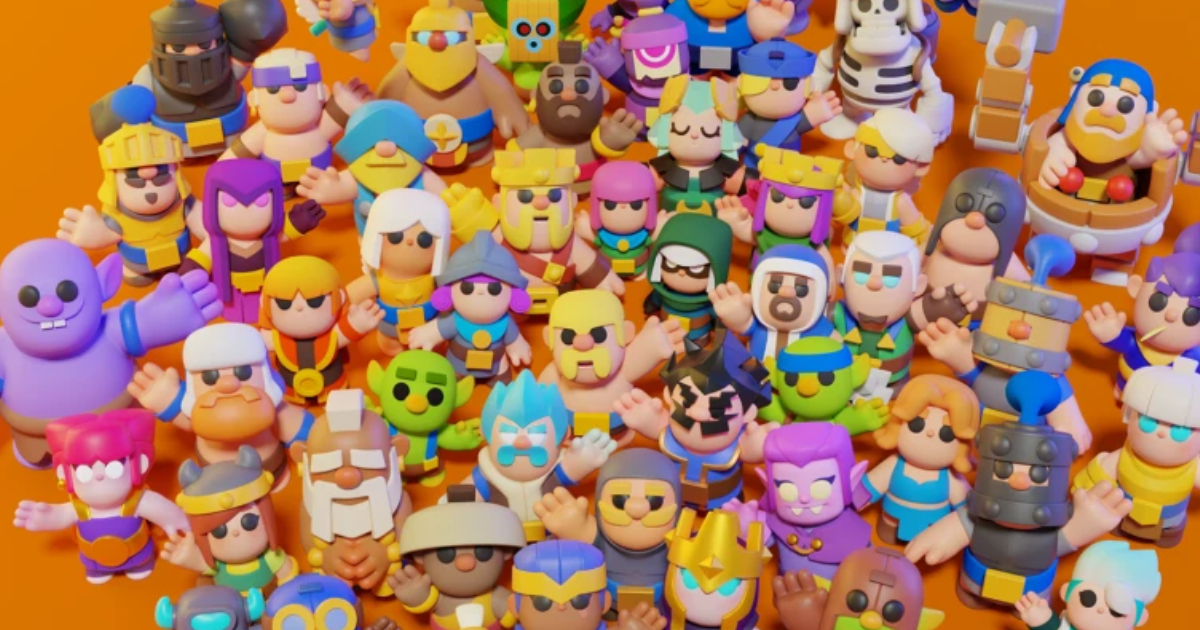Supercell is constantly working on new games, but most of them get killed at various stages of development. Clash Mini has now joined the unfortunate list after more than two years of soft launch.

What happened?
On March 14, Supercell announced its decision to cease development of Clash Mini. The company will soon disable in-app purchases and begin the server shutdown in late April.
Before the deadline, players will be able to transfer their IAPs to other live games: Clash of Clans, Clash Royale, Hay Day, Boom Beach, and Brawl Stars.
“Ever since the launch of Clash Mini into its Beta, we have strived for one simple thing: to make the best game we could,” Supercell said. “Our dream is to create great games that as many people as possible play for years and that are remembered forever. Today, we made the decision to end the development of Clash Mini, which was a good game but not the game that would ultimately fulfill our dream.”
However, Supercell still sees “very high potential” in Clash Mini, adding that it is being loved by both players and developers. That’s why the company decided to make the game part of Clash Royale, a rare move for the Finnish studio, which usually just discontinues projects in Beta and doesn’t return to them in any form.
Supercell is struggling to globally launch a new game
Supercell announced Clash Mini in April 2021, along with two other titles based on its main IP — turn-based strategy game Clash Quest and co-op action RPG Clash Heroes. Clash Quest was shut down in October 2022, while the status of Clash Heroes is still unclear (last news about it appeared in late 2021).
Clash Mini entered the Beta stage in late 2021, becoming available to users in a limited number of regions. According to AppMagic, the game has generated over $2.3 million in in-app purchase revenue (reduced by platform fees and taxes) during its soft launch period. Canada accounted for 37% of the total, followed by Hong Kong (10%), Australia (10%), Finland (7%), and Singapore (7%).
It is worth noting that no Supercell project has managed to turn into an actively supported live service game since Brawl Stars, which launched globally in December 2018. Over the past five years the company has shut down a bunch of titles, including Hay Day Pop, Everdale, and Flood Rush. For more details, revisit our list of all games shut down by Supercell.
The company currently has five live games: Clash of Clans, Clash Royale, Hay Day, Boom Beach, and Brawl Stars. It is also working on several new titles, including the monster-hunting game mo.co announced in October 2023.
Adapting to challenges by treating new games as startups
In his blog post announcing 2023 results, CEO Ilkka Paananen revealed that Supercell’s revenue fell 4.2% year-over-year to €1.7 billion, with EBITDA down 8.2% to €580 million. Despite some headwinds, he remains optimistic about its future.
According to Paananen, the company is still dedicated to fulfilling the mission he outlined last year, which includes two main goals: creating new innovative games and constantly improving successful live titles.
He noted that most people he discussed the new strategy with, including Supercell employees and industry experts (investors, founders, etc.), thought it was a bad idea. Despite the warnings, Paananen had no intention of backing down.
“The best-in-class companies grew their live games, we had not (GGWP: Dream Games, Riot Games, King, Playrix, and others),” he said. “Several great new games came out and performed extremely well since we launched Brawl Stars, we had not launched any (h/t: Royal Match, Genshin Impact, Monopoly Go, CoD Mobile, and others).”
That’s why Supercell decided to adjust its strategy and approach to both forming dev teams and operating games:
- New games and teams will be viewed as startups, with creative freedom but limited resources (“each new game team gets an agreed-upon budget. If they run out of money, before proving the game with players, the game is dead”);
- Teams should get new games in front of players as fast as possible to test market fit, while using all tools available, including not only Supercell’s proprietary engine, but third-party technology like Unity or Unreal;
- If the new game fits the market and is beloved by players, it enters the scaling phase, and the team turns into the so-called “Scaleup”: the main goal here is to continuously develop and improve the game as a live product.
Paananen believes that this approach will help Supercell achieve its ambitious strategy and ultimately increase the number of live titles in its portfolio. The studio also plans to hire new talent to grow its headcount of 550+ people, which is quite a rare move for a major game company amid mass layoffs across the entire industry.
